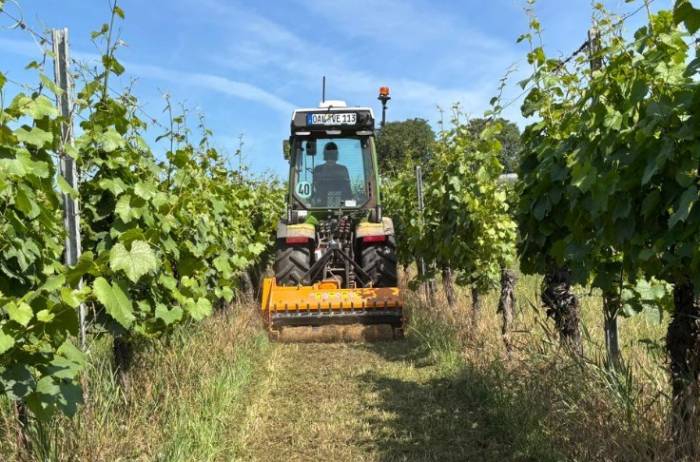Bordeaux Faces 50% Vineyard Loss as 80% of Wine Businesses Near Insolvency
Proposed public land agency aims to manage crisis, prevent mass abandonment, and transition struggling vineyards to new agricultural uses
2025-10-16

The wine industry in Bordeaux is facing a deep crisis, with falling demand, declining prices, and a growing number of vineyards at risk of abandonment. In response, the Confédération Paysanne de Gironde has called for the creation of a public land management agency to help steer the region through this difficult period. The proposal was presented on Thursday at a meeting of the prefecture’s viticulture task force in Gironde.
The union argues that current measures, such as uprooting vines and distilling surplus wine, are not enough to address the scale of the problem. Instead, they are asking for an Établissement Public Foncier (EPF), a public land agency, to buy up struggling vineyards. The goal is to prevent producers from continuing to operate at a loss and accumulating debt when there is no prospect of recovery. The EPF would then oversee the transition of these lands to new agricultural uses, supporting both outgoing and incoming generations of farmers.
This idea has been discussed in the region for several years, but the urgency has increased as the economic situation has worsened. According to the Confédération Paysanne, the Bordeaux wine sector could see a 50 percent reduction in vineyard area, which would have major consequences for the local economy and rural landscape. The union says that an EPF could help manage this transition in an orderly way, avoiding the chaos of uncontrolled land abandonment.
After the meeting, the prefecture announced that a working group will soon be formed to study the creation of such an agency. This group will include local governments, the regional EPF of Nouvelle-Aquitaine, the land management agency SAFER, the chamber of agriculture, banks, and professional organizations. The aim is to find a consensus on how to restructure the region’s vineyards and facilitate the conversion of abandoned plots to food production.
The Confédération Paysanne says that the EPF would need to acquire vineyards that are no longer viable, allowing older producers to exit the industry with dignity. The agency would also be responsible for consolidating and rehabilitating these lands for new agricultural uses, bringing in new producers and supporting rural renewal.
The union emphasizes that banks would play a key role in the project, and that local and regional governments would be responsible for ensuring that the agency serves the public interest. They propose a governance structure that includes agricultural organizations, environmental groups, and community representatives.
Financial estimates provided by the union suggest that buying 30,000 hectares of vineyards at 6,000 euros per hectare would cost around 180 million euros. Removing this land from wine production could reduce annual output by 1.2 million hectoliters, helping to stabilize prices. Maintaining these vineyards in production would require an additional 420 million euros over two years, costs that would otherwise be covered by debt and ultimately result in losses for banks and suppliers.
The Confédération Paysanne argues that investing in a public land agency would be more effective and less costly than allowing the current situation to continue. They warn that the Bordeaux wine market is now “apoplectic,” with no real prices for wine or vineyards, and that 80 percent of local wine businesses are effectively insolvent. The union claims that accountants and auditors are ignoring the true scale of the problem, with stocks still valued at their original prices despite the collapse in demand.
The proposal for a public land agency has received unanimous support from other agricultural organizations in the region, including the FDSEA, Jeunes Agriculteurs, Coordination Rurale, Viti33, the chamber of agriculture, and cooperative wineries. The next steps will depend on the outcome of the working group and the willingness of local and national authorities to commit resources to the project. The situation in Bordeaux remains critical, with many producers waiting for concrete action to help them navigate the ongoing crisis.
Founded in 2007, Vinetur® is a registered trademark of VGSC S.L. with a long history in the wine industry.
VGSC, S.L. with VAT number B70255591 is a spanish company legally registered in the Commercial Register of the city of Santiago de Compostela, with registration number: Bulletin 181, Reference 356049 in Volume 13, Page 107, Section 6, Sheet 45028, Entry 2.
Email: [email protected]
Headquarters and offices located in Vilagarcia de Arousa, Spain.